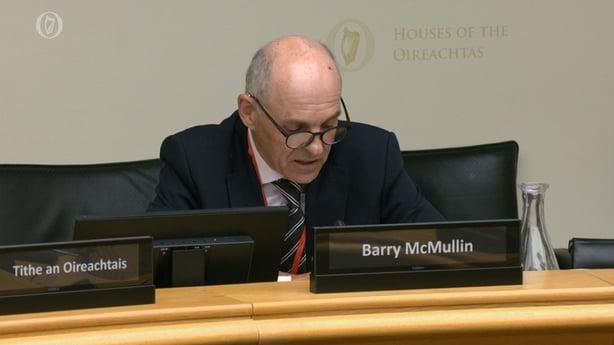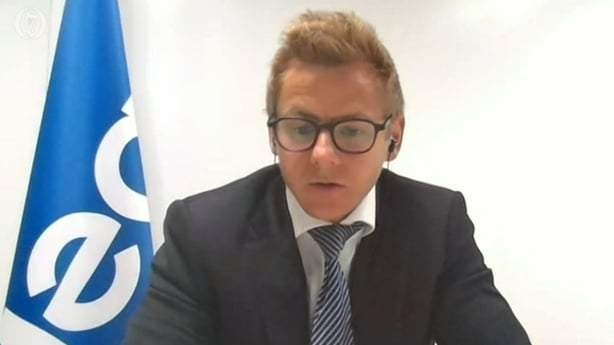Ireland must not "double down" on its failed reliance on fossil fuels, an energy expert has told an Oireachtas committee.
Professor Barry McMullin warned that while "the short-term risks of disruption to energy supplies are real and significant", sticking with fossil fuels would be a mistake.
The Dublin City University academic told the Joint Committee on Environment and Climate Action that any risks of going green are "entirely dwarfed by catastrophic climate disruption".

Prof McMullin said that Ireland faced a choice.
It can "exit fossil fuel dependency now in a rapid, proactive and managed way" or it can "dither and risk being forced into much more difficult, chaotic and painful responses in the near future".
The committee also heard from Gergely Molnar, the top Liquid Natural Gas (LNG) analyst at the International Energy Agency.
Demand for LNG - a fossil fuel - has soared as Europe struggles to find alternatives to Russian oil and gas.
Mr Molnar said that as the productivity of the Corrib gas field declines, LNG might suit Ireland as "the back-up fuel to compliment the variability of renewable energy resources".
But he warned against allowing a reliance on LNG to slow any moves towards net zero.

"There is the option of diversifying gas supply sources into Ireland," including finding suppliers of low-emission hydrogen and bio-methane, he added.
"Ireland does not have natural gas storage," Mr Molnar noted, adding that any such structure should be equipped to handle those other, low emission gases.
There is an "urgent need to double down" on the deployment of renewable energy, he told the committee.
"Also there is a clear need for a stronger push in terms of energy efficiency and the electrification of heat," Mr Molnar concluded.


